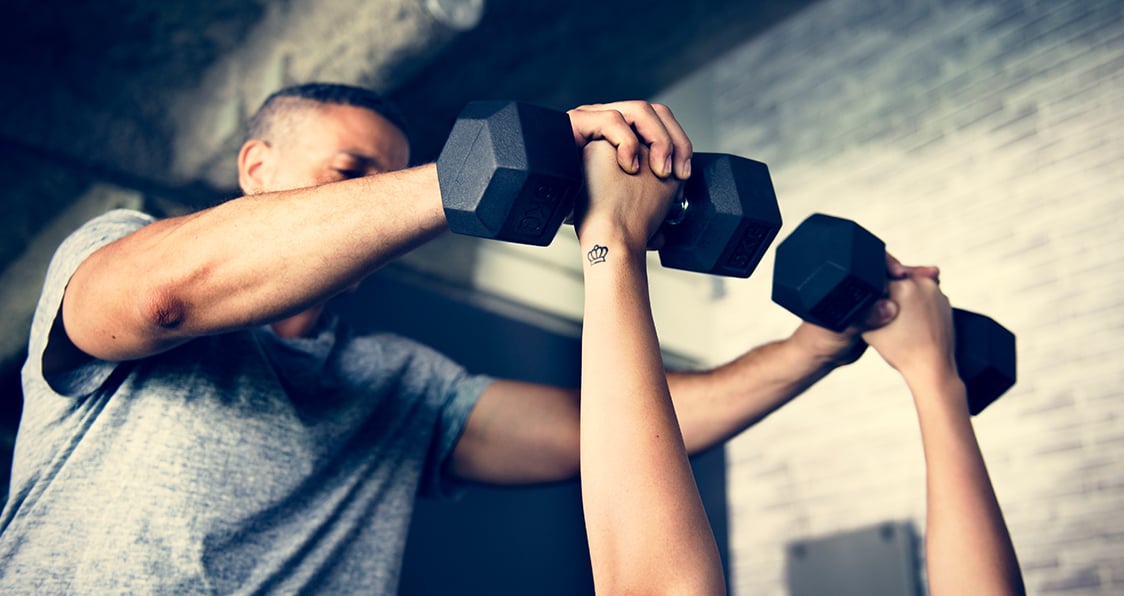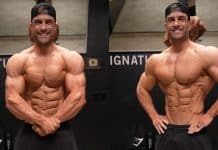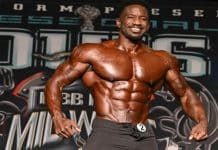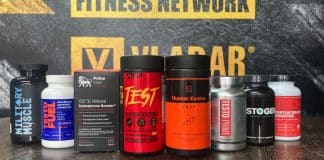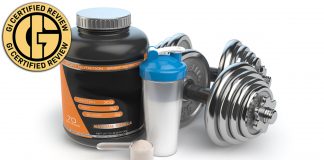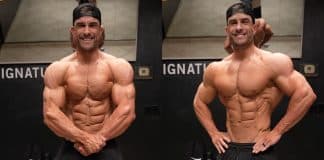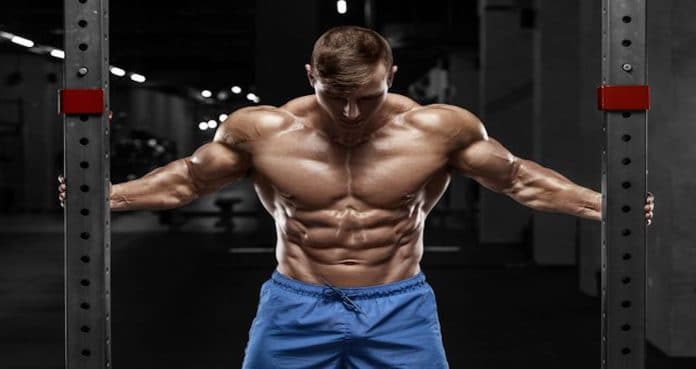
Research shows that just 13 minutes of weekly activity is enough to gain strength.
They say time is money, and that couldn’t be truer when it comes to working out. Not everyone has endless hours to dedicate to fitness, especially if it’s not your job. So, finding a sustainable balance becomes the key. Various factors, such as your goals, experience level, the specific exercises you’re engaging in, and even the ambiance of your gym, all come into play in this pursuit. So, in this article, we’ll look at how long a workout should last to achieve goals such as gaining strength, and how much exercise you should do to lose weight. We also share helpful tips for maximizing your time in the gym.
So, how long should you realistically spend in the gym? Research says you need about 150 to 250 minutes of exercise to lose weight (1). However, depending on your goal may determine if you need more time. For example, athletes like bodybuilders would spend more time than recreational exercisers. Balancing your workout time with the rest of your daily activities is essential, as it could affect your motivation and success. So, let’s dive further into the ideal workout duration below!
Beginners’ Workout Duration
Working out too long can negatively affect a beginner, so the best thing to do is ease into your routines. A short training time of 20 minutes is enough to get your fitness level up and improve your exercise form. Spending longer could lead to injuries and overtraining. Beginners’ muscles can’t handle the same workload as more advanced lifters.
If you have much more time and want to utilize it, try reducing your workouts’ intensity, meaning less volume (sets and reps) and using lighter weight. This will help prime your body for workouts and be a good starting point for your periodization scheme. Just remember to pay attention to your form and focus as you train.
What Type of Workout Are You Doing?
Another factor of how much time you spend working out will depend on the type of workouts you’re doing. Based on our readership, we’ve broken this down into cardio, calisthenics, bodybuilding, and strength training. You can then craft the perfect workout time with these objectives and other factors.
Cardio
Cardio, aka aerobic exercises, involve rhythmic exercises that raise your heart rate. The duration of your cardio will depend on your objectives and whether you’re doing a high-intensity or moderate-intensity routine. Just 10 minutes of moving is better than nothing. However, the American Heart Association recommends you get at least 150 minutes of moderate-intensity weekly aerobic exercise or 75 minutes of vigorous aerobic activity.
Bodybuilding
Bodybuilding workouts involve progressive resistance to build strength and spur muscle growth. When working on their physique, bodybuilders tend to break their training into splits where they hit particular muscles on specific days. This breaks the entire muscles of the body into manageable parts. On average, you can spend 60-90 minutes depending on the body parts you’re training and your experience level. So you can see how bodybuilders spend much more time in the gym than necessary for general fitness goals.
Calisthenics
Typically, calisthenics combines cardio and resistance exercises to improve your fitness parameters and make the workout more challenging since your bodyweight is the only resistance used. They’re usually high-intensity, bodyweight exercises, which can take less time than a standard strength training session. Research shows that high-intensity exercise offers excellent benefits to your health (2).
Strength Training
Strength training uses resistance, such as dumbbells, barbells, or resistance bands, to increase the strength of your muscles. Research shows that with just 13 minutes weekly, you can increase the strength of your muscles over eight weeks (3). However, it’s best to spend 30 minutes to an hour in the gym two to three days a week for optimal results.
Tips For Saving Time During Your Workouts
Now that you have an average idea of how long your workouts might last, it’s time to optimize. With the tips below, you can save a few minutes and make your routines more efficient and effective.
Have a Plan
Knowing what you plan to do when you get to the gym will make you less likely to wander around. You also won’t spend time deciding which muscle group to hit first. Knowing alternatives that hit the same muscle groups can also provide you with a plan if a particular machine is occupied.
Do Compound Exercises
Compound exercises hit multiple muscles in one movement. For example, barbell bent-over row targets your back as the primary muscle and hits your biceps as a secondary muscle. This makes them time-efficient and stops you from putting too much time into isolation exercises, like dumbbell curls, which can add time to your workouts.
Use Supersets
Supersets allow you to work two opposing muscles (like your chest and back) by exercising each while the other rests. For example, doing dumbbell bench presses and bent-over rows back-to-back before resting. As a result, your workouts will take less time overall, and you can fit in more volume. While your performance is slightly reduced for both exercises because energy use in the body is local, you can still hit those muscles well.
Do Aerobics
Aerobics can be beneficial for losing weight, building muscle, or increasing strength. They can help to increase your endurance, leading to you needing a shorter time for rest between sets. Aerobics also help with your conditioning. Just be sure not to overdo it if strength and muscle are your goals since too much cardio can impact your workout performance and ability to grow muscle.
For Experienced Athletes, Volume Is Key
As an experienced athlete, research shows that volume is the best factor to work with for gains (4). You’ll need to increase your volume by increasing your number of reps, sets, exercises, or workout frequency to increase your strength and size. But if you focus on increasing the load instead, it could lead to a shorter workout. However, the more advanced you get, the better it is for your goals to increase both the volume and load.
Rest
Since we’re discussing workout time, rest is a critical factor in how long your workouts last. You need rest to avoid injuries, and research shows that for strength and size gains, rest plays a key role (5). However, letting time getaway when you aren’t paying too much attention is easy, so timing your rest can help make things faster. Having at least one day off from training is critical regardless of your level. But beginners and intermediate lifters should take a few days off from the gym.
Consensus
The duration of your training regimen depends on your individual goals and experience level; there’s no one-size-fits-all answer. For bodybuilders, spending at least a couple of hours in the gym most days is common. Beginners, however, can achieve their goals with just a few days of 30-minute strength training sessions. Research shows that 150 minutes of moderate activity or 75 minutes of vigorous exercise is recommended for weight loss and overall health. Interestingly, even just 13 minutes of strength training can improve strength parameters.
Without a doubt, any form of exercise surpasses doing nothing at all. Engaging in activities that align with your goals and skill level is vital, incorporating cardiovascular exercises and strength training while allowing yourself sufficient rest. By doing so, you’ll find a harmonious equilibrium between your gym routine and personal life.
Follow us on Instagram, Facebook, and Twitter for more workout tips!
References
- DONNELLY, J. E., BLAIR, S. N., JAKICIC, J. M., MANORE, M. M., RANKIN, J. W., & SMITH, B. K. (2009). Appropriate Physical Activity Intervention Strategies for Weight Loss and Prevention of Weight Regain for Adults. Medicine & Science in Sports & Exercise, 41(2), 459–471. https://doi.org/10.1249/mss.0b013e3181949333
- Wu, Z. J., Wang, Z. Y., Gao, H. E., Zhou, X. F., & Li, F. H. (2021). Impact of high-intensity interval training on cardiorespiratory fitness, body composition, physical fitness, and metabolic parameters in older adults: A meta-analysis of randomized controlled trials. Experimental gerontology, 150, 111345. https://doi.org/10.1016/j.exger.2021.111345
- Schoenfeld, B. J., Contreras, B., Krieger, J., Grgic, J., Delcastillo, K., Belliard, R., & Alto, A. (2019). Resistance Training Volume Enhances Muscle Hypertrophy but Not Strength in Trained Men. Medicine and science in sports and exercise, 51(1), 94–103. https://doi.org/10.1249/MSS.0000000000001764
- Schoenfeld, B. J., Ogborn, D., & Krieger, J. W. (2017). Dose-response relationship between weekly resistance training volume and increases in muscle mass: A systematic review and meta-analysis. Journal of sports sciences, 35(11), 1073–1082. https://doi.org/10.1080/02640414.2016.1210197
- Grgic, J., Lazinica, B., Mikulic, P., Krieger, J. W., & Schoenfeld, B. J. (2017). The effects of short versus long inter-set rest intervals in resistance training on measures of muscle hypertrophy: A systematic review. European journal of sport science, 17(8), 983–993. https://doi.org/10.1080/17461391.2017.1340524


